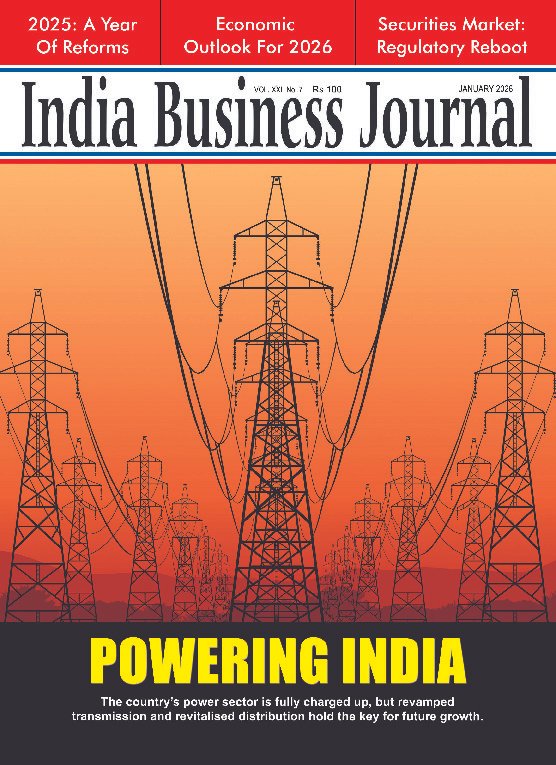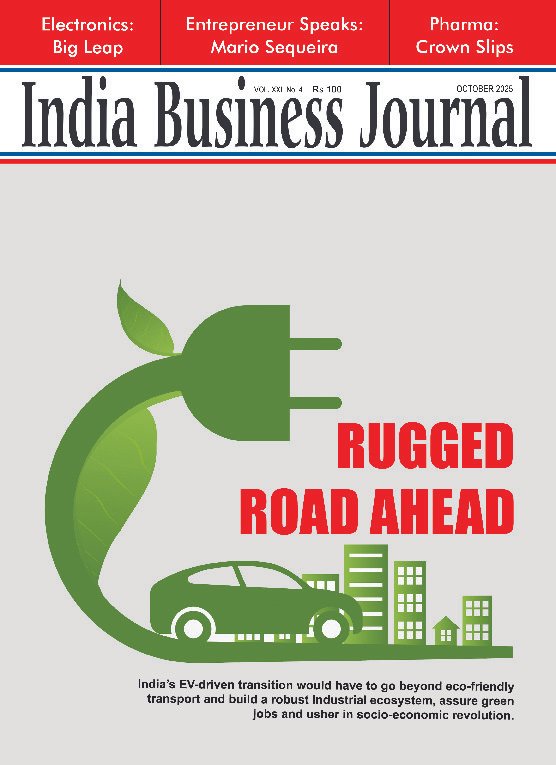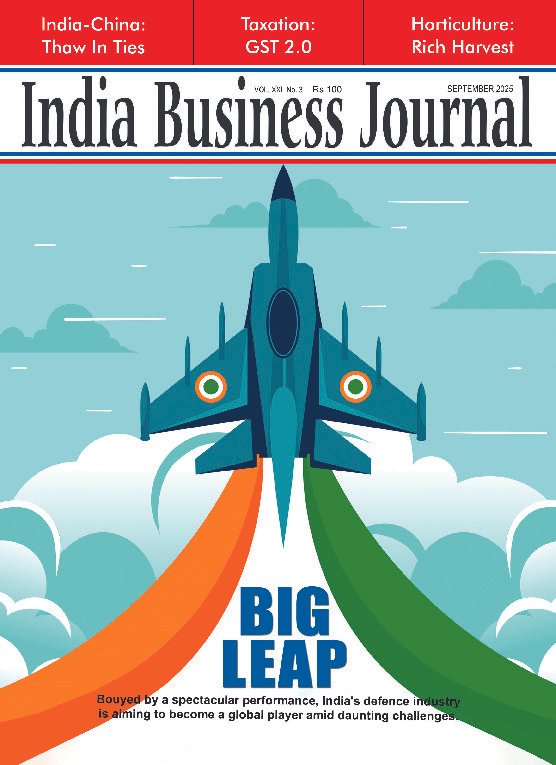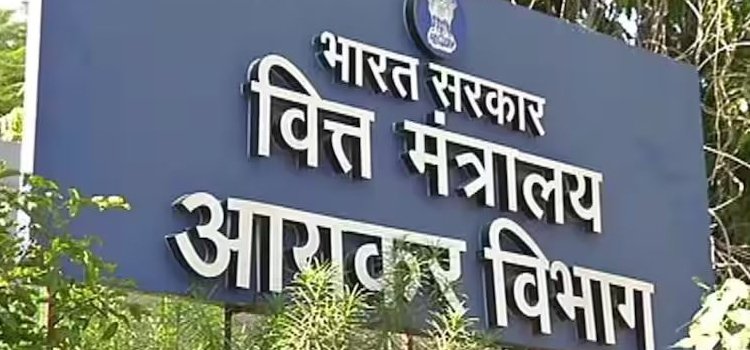INTERVIEW
FACE TO FACE - “Challenging Times Make Startups Innovative”: Sanjay Sarda, Co-Founder & Director, Growth Sense Group
- Amit Brahmabhatt
- Aug 10, 2023

Sanjay Sarda is among a rare breed of business executives who have spent their career across very diverse sectors. An alumnus of IIT Kharagpur and IIM Ahmedabad, Mr Sarda’s three-decade-long career includes multiple entrepreneurial stints and diverse consulting responsibilities in both India as well as the US.
The co-founder and director of Growth Sense Group has had stints in top posts across many multinational companies, like Monsanto, Procter and Gamble, General Electric, Tata Consultancy Services, IBM Global Services, CSX Corporation, Krishidhan Group and Ernst and Young. His Growth Sense Group provides a vibrant ecosystem for startups, providing end-to-end solutions from validation of an idea to developing the product and arranging growth capital.
Mr Sarda has the distinction of being one of the first few certified corporate directors of India from the Indian Institute of Corporate Affairs and the Institute of Directors. Growth Sense is a registered startup with Union government and funded and supported by marquee angel investors and industry leaders.
In an in-depth interview with the IBJ, Mr Sarda – who is actively associated with Rotary International and Saturday Club Global Trust – provides interesting insights into the Indian startup ecosystem, its growth and the future ahead.
The country is now home to the third-largest startup ecosystem in the world. What is your take on this exciting journey?
India has witnessed exponential and truly-remarkable growth in the last decade on its journey to becoming the world’s third-largest startup ecosystem. Startups hold tremendous potential for the country’s economic development. The growth of the startup ecosystem signifies that India has become a fertile ground for innovation and entrepreneurship, attracting both domestic and international investors. The emergence of successful startups fosters a culture of creativity and risk-taking, which is essential for driving technological advancements and finding solutions to societal challenges. Moreover, the startup ecosystem creates numerous job opportunities, helping to address unemployment issues and driving economic growth.
How do you see global uncertainty unfolding on Indian startup funding?
Global uncertainty can have mixed implications for Indian startups’ funding. On the positive side, established startups with proven track records and stable business models may experience increased interest from risk-averse investors seeking safe investments. Additionally, sectors that cater to essential needs, such as healthcare, education, finance and technology, may attract more attention during uncertain times. On the other hand, mid-stage startups may face challenges in securing funding, as investors may adopt a cautious approach during uncertain economic conditions. At the same time, idea-stage to very-early-stage startups with balanced and strong founding team and real problem-solving ideas will continue to get funding without any challenges. However, it’s worth noting that challenging times can also spur innovation and encourage startups to find creative ways to thrive.
What would be the impact of Startup20 – the first-ever engagement group initiated under the Indian presidency of G20 by – on the Indian startup ecosystem?
Startup20 can be considered as one of the top level strategic support systems and has the potential to be a game-changer for the Indian startup ecosystem. By bringing together various stakeholders like entrepreneurs, investors and experts, the group can create a collaborative platform for knowledge sharing, mentorship and funding opportunities. Startups could benefit significantly from this increased access to funding and expertise, leading to accelerated growth and expansion. The formation of such a group will attract more international investors and foster partnerships with global players.
Where do you see the most startup opportunities in terms of sectors and geographies?
The most promising startup opportunities in terms of sectors in India are diverse and include almost every sector with some dominance of technology and software services, e-commerce, healthcare, fintech, renewable energy and edtech. Geographically, several cities have emerged as major startup hubs in India, including Delhi-NCR, Bengaluru and Mumbai. Cities like Ahmedabad, Hyderabad, Chennai, Pune and Surat are also catching up very fast.
Valuation of startups seems expensive at times compared to historical norms. Would you elaborate on the rationale behind this overpaying?
In any asset class, valuations are more of a demand and supply game. Value of the same asset can be perceived by someone as expensive while for someone else it is very attractive. Overall, high valuations of startups compared to historical norms can be attributed to various factors. First, there may be a scarcity of high-quality startups with disruptive technologies, leading to intense competition among investors to invest in the most promising ventures. Additionally, a positive investor sentiment and ample liquidity in the market can drive up valuations. Investors may also fear missing out on the next big success story, prompting them to pay a premium for early access to potential unicorns.
Being a veteran startup investor, what according to you are the major challenges that startups face today?
As a veteran startup investor, who has invested in over 60 startups after evaluating over 750 opportunities, I believe startups face several critical challenges. Fierce competition is a constant hurdle, making it crucial for startups to differentiate themselves and find unique value propositions. Access to right set of investors for funding, especially at the early stages, remains a significant challenge for many startups. Attracting and retaining top talent can be difficult, particularly for startups competing with established companies. Market uncertainty and changing consumer preferences can make it challenging to sustain growth and profitability. Navigating complex regulations and compliance requirements can also pose significant barriers for startups. Managing cash flow and ensuring financial sustainability is a constant concern for startups.
How do you see government-backed dedicated funds and skill development programmes helping small cities and rural areas in joining the startup wave?
Government-backed dedicated funds and skill development programmes play a crucial role in fostering startup growth, especially in small cities and rural areas. These initiatives help in addressing regional disparities by empowering local entrepreneurs and creating job opportunities within their communities. As startups in smaller regions thrive, it leads to localised economic growth and reduces the concentration of startups in major cities. In the long run, this balanced growth across different geographies contributes to the overall development and prosperity of the nation.
Is there any advice or guidance you would like to offer to startup founders?
Investors have a strong belief on the overall combination of parameters – including the founding team, idea and execution plans –at the time of providing the capital. Many founders fail after receiving funds, primarily for reasons linked to mismanagement of funds. They try to do something which was not in the original plan, and now available funds in the bank can do that. Founders are advised to treat investors’ money as their own money and take due care while spending or deploying funds on business objectives. And founders who are yet to receive funding support are advised to get the idea and business model validated from external neutral experts and continuously refine the value proposition and strengthen the assurance of personal long-term commitment with measurable skin in the game.





















Report By
View Reporter News